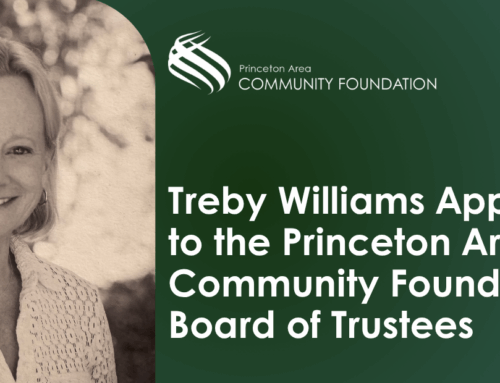When you think about supporting your favorite charities or making contributions to your donor-advised or other type of fund at the Community Foundation, cash may be the first thing that comes to mind. It seems so easy to just write a check or donate online. (You probably don’t immediately think of artwork or other types of assets!)
Most of the time, gifts of highly-appreciated marketable securities are the most logical non-cash gift. Gifts of publicly-traded stock, for example, are easy to transfer to your donor-advised or other type of fund at the Community Foundation. The Community Foundation team can provide you or your advisor with transfer instructions to make the process simple. As is the case with a cash gift, the Community Foundation will provide a receipt for tax purposes, and your gift of stock will be valued at the shares’ fair market value on the date of transfer. When the Community Foundation sells the shares, the proceeds flow into your fund without any reduction for capital gains taxes. This is because the Community Foundation is a 501(c)(3) charitable organization and therefore does not pay income tax. That would not have been the case, however, if you had sold the stock first and then transferred the proceeds to your fund at the Community Foundation; you’d owe capital gains tax on the sale. Especially in cases where you’ve held the stock a long time and it’s gone up significantly in value since you bought it, the capital gains hit can be significant.
Cash and publicly-traded stock are not your only options for adding to your fund at the Community Foundation. You can also give assets such as real estate, closely-held business interests, and even artwork or other collectibles. When you give assets like this to a fund at the Community Foundation or other public charity, the tax treatment of these “alternative” assets is the same as gifts of marketable securities in that no capital gains tax will be levied when the charity sells the assets, and, assuming the assets are “long term” capital gains property under IRS rules, you’ll be eligible for a charitable deduction at the fair market value of the assets on the date of transfer. Gifts of assets other than cash or marketable securities are sometimes called gifts of “complex assets,” but that does not mean the process needs to be intimidating. The team at the Community Foundation can work with you and your advisors every step of the way.
You can also use “complex” giving techniques to achieve your estate planning and tax goals. For example, if you are over 70 ½, the Community Foundation can work with you and your advisors to execute a Qualified Charitable Distribution from your IRA to a designated or field-of-interest fund. Or, we can work with you and your advisors to establish a charitable remainder trust if you’d like to retain an income stream and also get the benefit of an up-front charitable deduction.
As the end of the year approaches, it’s a good time to evaluate your portfolio with your advisors to determine whether a gift of complex assets might help you support a critical need in the community while providing key tax benefits for you and your family.
If you have questions about an asset you’re interested in contributing, please contact Patricia Matos, Director of Philanthropic Services. The Community Foundation is happy to help you establish a charitable giving plan and take the complexity out of giving complex assets.






